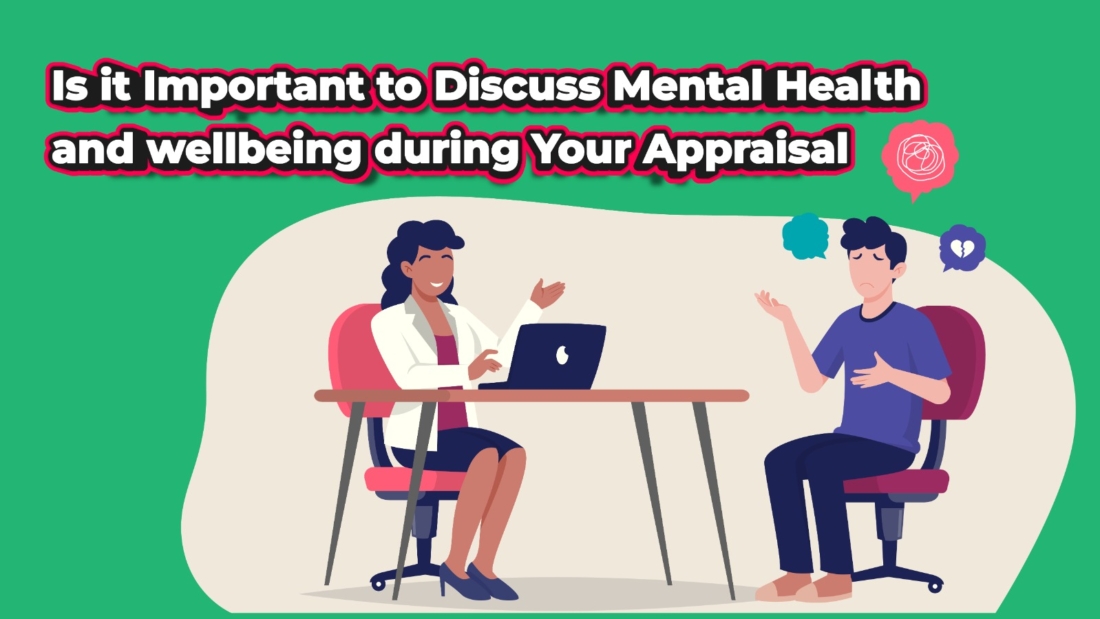Research tells us that more and more people are talking about their mental health in the context of work. This shows a growing trend to be comfortable talking about mental health concerns at work. But, would the yearly appraisal be the best space to bring up concerns and challenge of this nature?
The fact that people are speaking up about their mental health points to how important it is for leadership to take cognisance and create space for such conversations, especially when we consider measures to retain talent at work.
It is really important to speak about mental health during review meetings with the team, however this response would be incomplete without exploring steps managers need to take to ensure that these conversations feel safe to people on the team.
- Ensure that reviews are regular and consistent. This will take the edge off the single annual performance which feels like there is so much more at stake, and make it more difficult to honestly discuss mental health concerns. This should be consistent over follow up conversations as well.
- Destigmatize mental health and mental health support. Organisations need to work to build awareness around mental health concerns through sensitization programs, drives and campaigns consistently through the year. This will enable individuals to not only be able to support each other but also to be able to identify and accept one’s own mental health challenges, adopt healthy coping mechanisms and understand how to reach out for support, and be more ready to do so as well. This can also be done through regular dissemination of content through mailers and posters.
- Adopt a flexible attitude: We need to be able to adopt a flexible approach when responding to mental health concerns emerging within teams. This may require managers to think on their feet, reallocate tasks and priorities and even reimaging goals and timelines when necessary. This does not need to be a business goals versus support conflict in the mind, rather a revisiting of the situation to explore how best to achieve business goals with the resources at hand without overwhelming the team. This requires managers to also think creatively and keep compassion at the core.
- Ask with intention, and show that there is care and support available: When exploring mental health concerns, it’s important to ask questions sensitively, without judgment and hold space for the person you are speaking to. It also requires managers to prepare mentally to listen to real time challenges without resentment or bias and to be able to respond supportively. When asking questions, the intention needs to be to genuinely want to know how things are going for the team or individual, and the concern needs to be communicated through manner, tone, expressions and body language as well.
- Manager training: To be able to navigate these challenging conversations at work, it is recommended to have regular manager training and awareness sessions to address issues and concepts like psychological safety at work, unconscious bias, how to identify signs of distress and how to respond appropriately to distress.
- Mental Health support: While usually, such conversations may be taken up by a manager or team leader, there may be some cases wherein the employee may prefer or need to speak with someone with specific training to support them or with space to hold confidential conversations safely.
To enable this it becomes important for leadership to explore access to mental health support through EAPs, referrals, or benefits for accessing counselling services enmeshed in policy.
In order to truly develop safe and equitable workspaces, we need to begin to have more and more wellbeing related conversations regularly and these conversations could be incorporated into progressive policy and practice, enhancing existing processes, such as one-to-ones, appraisals or goal setting discussions. Several organisations are spotlighting mental health conversations within the workplace. For example, the NHS People Plan requires that all NHS staff have a health and wellbeing conversation, and are supported to develop a personalised wellbeing plan.
If you would like to reach out to us to know how we can support you to develop equitable and safe spaces at work, write to us at therapy@mentalhealthatwork.in
Written by Rosanna Reviewed by, Samriti Makkar Midha
 Cart is empty
Cart is empty 


